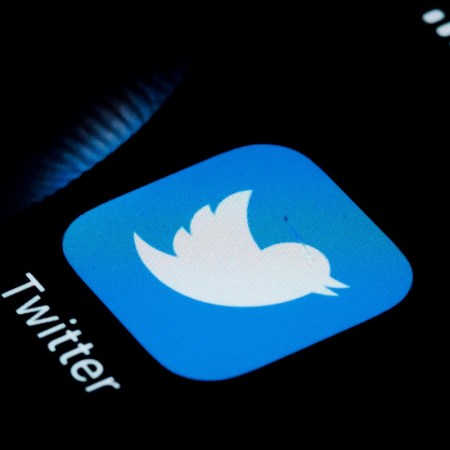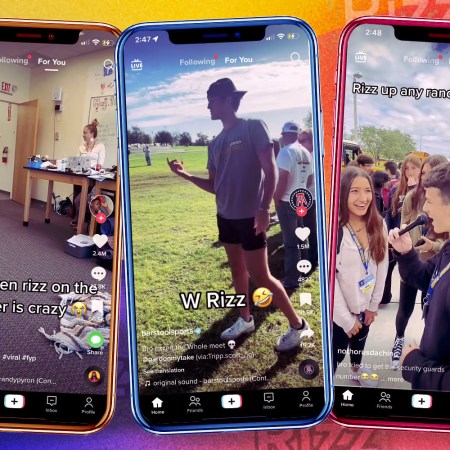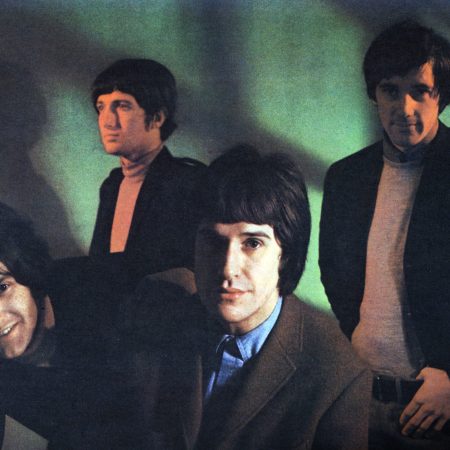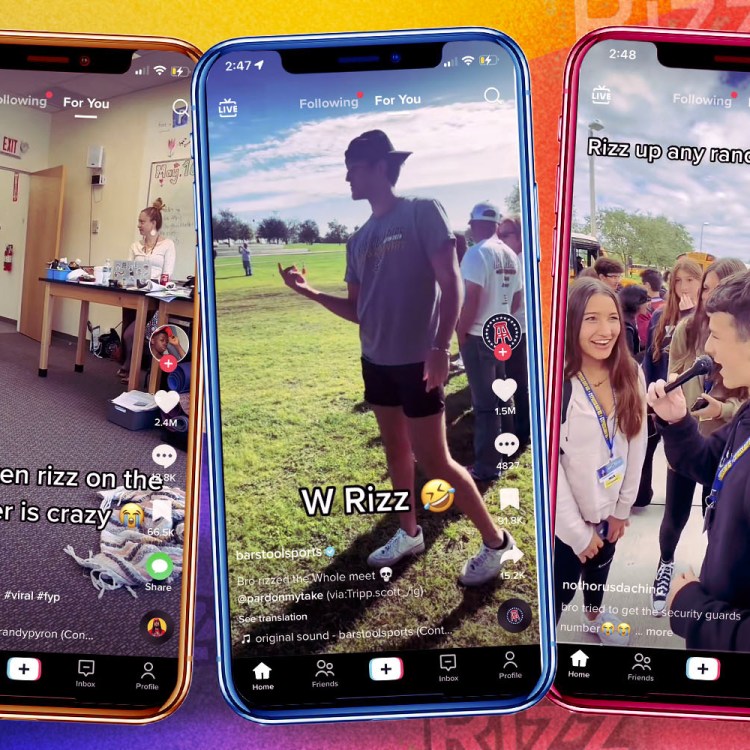Sometimes the internet goes over our heads. Luckily, we have a college student on staff to help us navigate those times. This is cancel culture, youthsplained.
The cancellations never stop pouring in — and I’m not talking about all the shows Netflix has decided to end so abruptly. I’m talking about all the times we “cancel” celebrities, media personalities and really anyone with a social media platform we decide they’re using inappropriately.
You may have heard the term “cancel culture” pop up just last week when comedian Sarah Silverman said on an episode of “The Bill Simmons Podcast” that she thought “cancel culture” should itself be canceled, adding that social shaming is “really scary” and referring to the whole thing as “righteousness porn.” Silverman was fired from a movie recently, after a 2007 photo of her in blackface resurfaced, even though she has since apologized for the photo, going so far as to draw attention to it in an interview for GQ last year. The comedian argued on the podcast that cancel culture leaves no room for growth.
“I’m not saying, ‘Don’t hold me accountable,’ ” she said. “I held myself accountable. I can’t erase that I did that, but I can only be changed forever and do what I can to make it right for the rest of my life.”
When two allegations of sexual misconduct against Katy Perry were reported last week, there was a small campaign on Twitter to cancel the singer — evidence of which you can find when you search the hashtags #KatyPerryIsOverParty (the customizable hashtag format typically used in cancelation campaigns) or #SurvivingKatyPerry, a play on the “Surviving R. Kelly” documentary that exposed his history of sexual assault.
However, those tweets are few in comparison to other historic cancelations, which is probably because we don’t take sexual misconduct allegations against women as seriously as we do those against men, which, yes I know, is fucked up. It can also be because Perry has a swarm of dedicated fans, hell bent on convincing the world of her innocence, who created the counter hashtag #KatyPerryIsLovedParty.
Cancel Culture is one of the more complicated trends to hit the internet in recent years. Some argue that it’s too harsh, others argue that it just doesn’t have any real consequences. Certainly it has ruined people’s reputations and chances at business opportunities, in many cases rightly so, but it has also created a mob-like mentality thereby any minuscule mistake makes it open season for intense backlash.
But there’s a lot to unpack here so we might as well get to it.
Ok, so what exactly is Cancel Culture?
According to Wikipedia — yes, there is a Wikipedia page — there are two variant terms for the trend. The term call-out culture is a form of public shaming which occurs on social media (usually Twitter) that aims to hold people accountable by calling attention to behavior that is deemed problematic. Cancel culture is a form of boycott in which someone, typically a celeb, has shared a questionable opinion, or again, has had problematic behavior called out on social media. That person is then “canceled,” which essentially means they’re boycotted by a large number of people, sometimes leading to massive declines in the person’s fanbase and career.
This usually begins when a person says or expresses an opinion that is racist/sexist/homophobic/transphobic/xenophobic. Most often it is something that person has said in their distant past that has been found and re-posted, bringing new attention to it. This can be screenshots of old tweets or old videos that resurface of the problematic behavior in question.
These types of cancellations have been especially prominent in the world of beauty YouTubers. In 2018, make-up artist Laura Lee lost over 300,000 subscribers on her YouTube channel and had businesses and sponsors sever ties with her after tweets from 2012 resurfaced that showed her making racist remarks. She uploaded a 4-minute apology video that was criticized for being insincere and for her apparent “fake crying,” which then eventually became a meme.
Related:
Why Is Every Young Person You Know Drinking Hard Seltzer?
You’ve Been Texting the Word “Okay” Wrong
But it can happen for bigger name celebrities too. Kevin Hart stepped down from hosting the 2019 Oscars because of resurfaced homophobic tweets, with much of Twitter, including celebs, calling out his behavior. This eventually got the attention of the Academy who asked Hart to apologize. The backlash only increased after Hart refused to apologize, and it was only after he announced he was stepping down from hosting duties that an apology also ensued.
Then there are the cancelations that can occur from less severe circumstances. Back in 2016, Taylor Swift was “canceled” after the internet accused her of “always playing the victim” after she got into a feud with Kim Kardashian and Kanye West over a lyric in West’s song “Famous.” Kim K called Swift a snake, using the snake emoji, of course, and pretty much the entire rest of the internet followed suit.
In a recent interview with Vogue, Swift said that the entire experience felt isolating. “I don’t think there are that many people who can actually understand what it’s like to have millions of people hate you very loudly,” said Swift. “When you say someone is canceled, it’s not a TV show. It’s a human being. You’re sending mass amounts of messaging to this person to either shut up, disappear, or it could also be perceived as, Kill yourself.”
So is Cancel Culture good or bad?
Well, it’s complicated. Calling out someone, especially someone who has great influence, for their harmful behavior or ideas is something that we should continue to do. Call-out culture has especially been helpful for people of color and LGBTQIA+ communities in keeping their spaces free of shitty people.
But then many have also brought up that the mob-mentality of cancel culture can be toxic, and as Sarah Silverman pointed out, these mass social media campaigns against a person can actually hinder them from growing and learning from their mistakes. Instead of “canceling” them, we should be educating them.
Fine, but is “canceling” someone actually effective?
It depends, and it’s not necessarily even clear on what.
Another beauty guru, Jeffree Star, was also called out during the time of Laura Lee’s cancellation for saying the N-word in an old video. But while Lee was pretty much canceled for good, Star is still one of the most popular people on YouTube, with over 15 million subscribers, a wildly successful makeup brand and millions of followers across other social media platforms.
Taylor Swift has gone through the wringer of “cancelations” as well, and she’s still the #1 female artist in the world. Kanye West was “canceled” for his support of Trump, Kim Kardashian gets called out almost daily for culture appropriation — yet they’ve still got millions of fans and will remain among the richest people in the world.
Many have argued that cancel culture exists only in the Twitter bubble. It can seem as if a celeb’s entire existence is finished when thousands of users start hashtagging “___IsOverParty,” but in the real world, it might not even cross people’s minds. Which might be why bigger name celebs have an easier time bouncing back from scandals, and why YouTubers and Instagram influencers whose businesses and brands live solely in the realm of the internet are more often the subjects of cancelation campaigns — and have a harder time bouncing back.
Plus having a large army of diehard fans willing to clutter feeds with tweets in your defense, like in the case of Katy Perry, can also help higher-powered celebs come back from the cancelation dead.
What’s certain is that cancel culture has started to lose its impact in recent years. Maybe because at times it has spiraled out of control and been used for the wrong reasons, forcing people to start questioning it. Or maybe we’ve become immune since people in high places — the highest of all the places, one might say — can now say and do whatever they want without being held accountable or subject to any consequences. As but a youth, who am I to say?
This article was featured in the InsideHook newsletter. Sign up now.






















